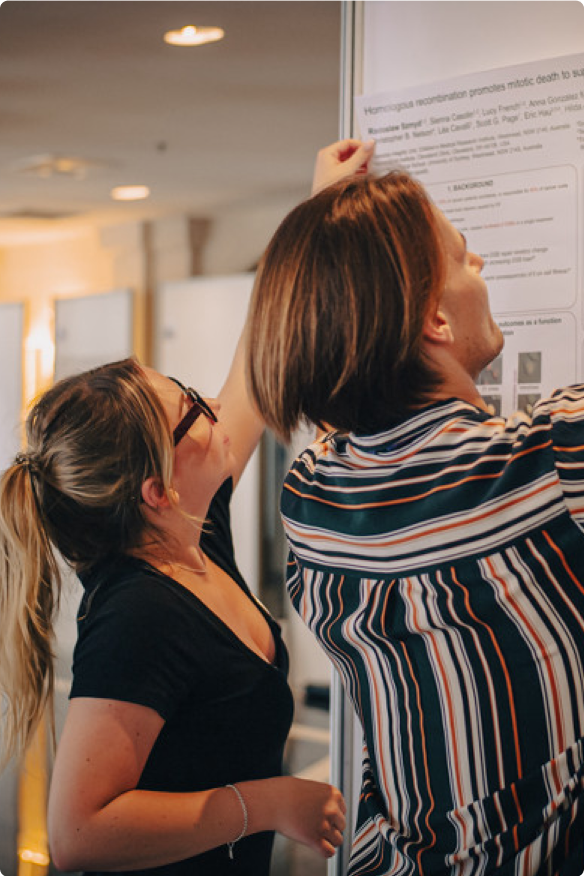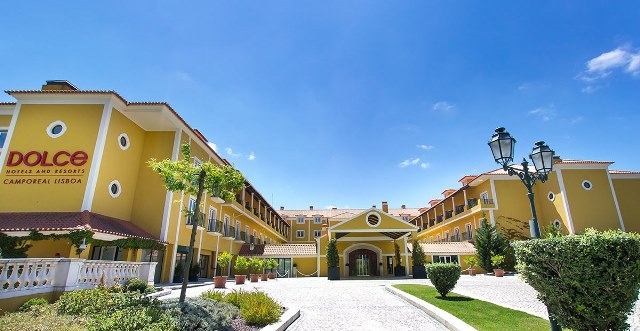- Home
- Past Conferences
- 3rd Chromosomal Instability as a Driver of Human Disease Conference
Synopsis
We understand that registering for a conference is not essential right now. Many researchers will be unable to register for a future conference of interest if their organisation is temporarily closed or preventing travel. Therefore, you can simply register your interest here without committing to attending, and our team will keep you updated regarding deadline reminders and grant opportunities. We hope this service is helpful during this difficult time.
This conference is a continuation of the DNA Replication as a Source of DNA Damage series.
The maintenance of genome integrity is critical for the suppression of several pathological disorders in humans, including cancer, infertility and neurodegeneration. Moreover, the accumulation of unrepaired errors in DNA is commonly cited as a likely cause of tissue and organismal ageing. Destabilization of the genome can occur as a result of several cell intrinsic or extrinsic factors, including errors arising during DNA replication or chromosome segregation, as well as exposure of cells to agents that induce DNA damage. In this conference, we aim to bring together scientists studying DNA replication, DNA repair and chromosome segregation with those interested in how chromosomal instability can influence human pathology. Moreover, we aim to show how high throughput and high content screening methods can be used as a discovery tool both for basic science applications and to identify potential therapeutic modalities.
Key Sessions
- Pathways for repair of DNA damage and disrupted DNA replication forks
- Screening tools for analysis of genome maintenance pathways and for development of new therapeutics
- Chromosome fragility caused by difficult-to-replicate loci – sources and roles of DNA repair proteins
- Chromosome instability as a driver of tumorigenesis, neurodegeneration and ageing
- Exploitation of defects in chromosome maintenance in cancer treatment
Student Offer
Take advantage of this fantastic opportunity for students! Fully paying academics can bring a student for only €820. Unfortunately, Postdocs are not eligible for this offer. Both registration packages include; accommodation for the 04, 05, 06 October 2021 (on a shared basis for students) and a food and beverage package for the conference period. Once registered, please contact Jack Peters to obtain a special registration link for your student.
Confirmed Invited Speakers
Monica Bettancour-Dias (Instituto Gulbenkian de Ciência)
María Blasco (Spanish National Cancer Research Center)
Thijn Brummelkamp (Netherlands Cancer Institute)
Keith Caldecott (University of Sussex)
DNA STRAND BREAK REPAIR AND HUMAN DISEASE
Vincenzo Costanzo (IFOM)
CAUSES AND CONSEQUENCES OF DNA REPLICATION STRESS IN VERTEBRATE ORGANISMS
Daniel Durocher (Lunenfeld-Tanenbaum Research Institute)
PROBING DNA REPAIR WITH SYNTHETIC LETHALITY
Daniel Gerlich (Institute of Molecular Biotechnology)
CONFORMATION OF REPLICATED CHROMOSOMES
Thanos Halazonetis (University of Geneva)
MAPPING DNA REPLICATION ORIGINS IN NORMAL AND CANCER CELLS
Steve Jackson (The Gurdon Institute)
CELLULAR RESPONSES TO DNA DOUBLE-STRAND BREAKS: MECHANISTIC INSIGHTS AND THERAPEUTIC APPLICATIONS
Andrew Jackson (University of Edinburgh)
RIBONUCLEOTIDE EXCISION REPAIR - GENOME INSTABILITY, MUTAGENESIS, AND INFLAMMATION
Joanna Loizou (CeMM Research Center for Molecular Medicine of the Austrian Academy of Sciences)
THE DNA DAMAGE RESPONSE IN HEALTH AND DISEASE
Núria López-Bigas (IRB Barcelona)
COMPUTATIONAL ANALYSIS OF THOUSANDS OF CANCER GENOMES TO UNDERSTAND MUTATIONAL PROCESSES
Ana Losada (Spanish National Cancer Research Center)
CONTRIBUTION OF COHESIN MUTATIONS TO AGGRESSIVE EWING SARCOMA
Niels Mailand (Novo Nordisk Foundation Center for Protein Research)
DEFINING THE ESSENTIAL ROLES OF SUMOylation IN CHROMOSOME STABILITY
Marcos Malumbres (Spanish National Cancer Research Center)
René Medema (Netherlands Cancer Institute)
Serena Nik-Zainal (MRC Cancer Unit)
Andre Nussenzweig (National Institutes of Health)
Ketan Patel (MRC WIMM, University of Oxford)
Christopher E. Pearson (The Hospital for Sick Children)
Zuzana Storchova (TU Kaiserslautern)
Steve West (Francis Crick Institute)
SPECIFIC KILLING OF BRCA1 OR BRCA2 DEFICIENT CANCER CELLS BY TARGETING NUCLEOTIDE SALVAGE PATHWAYS
Target Audience
This meeting will appeal to Molecular/Cell Biologists/Geneticists & Biochemists interested in genome stability. Researchers interested in the molecular basis of cancer, neurodegenerative diseases and ageing and those with an interest in high throughput genetic and pharmacological screening methods will also find the conference highly relevant along with those wishing to exploit genome maintenance abnormalities in tumour cells for therapeutic benefit.
Educational Need
Chromosome instability is involved in several human diseases and is a feature of natural ageing. This conference will bridge fundamental studies on the mechanisms by which cells maintain genome stability with applications of these studies aimed at the development of new therapies. Hence, the conference will bridge basic biology and clinical applications in this rapidly advancing field. Attendees should be able to obtain a full picture of the current status of the field, as well as to interact with prominent research leaders driving the clinical application of the latest research.
Confirmed Speakers
Chairs
Programme
Although the programme has not yet been released, we are able to confirm that the conference should begin no earlier than 14:00 with opening comments on 04th October 2021. The conference will conclude no later than 12:30 on 07th October 2021.
Supported by
Venue & Location
Dolce CampoReal Lisboa
Located in Torres Vedras, just a 30-minute drive from Lisbon, Dolce CampoReal Lisboa offers unique tranquillity, as a result of its idyllic environment. With stunning views over the golf course, vineyards and the extraordinary landscape of Socorro and Archeira Mountains, this is an idylic environment to host a conference.
The hotel has three restaurants to provide a variety of gastronomic choices, and two bars including one located beside the outdoor pool.
Hotel Facilities
Complimentary Wi-Fi in guest rooms and throughout hotel and conference areas
Indoor heated swimming pool
Outdoor swimming pool with Jacuzzi
Spa
Gym
Golf course
2 Tennis courts
General Information
Venue Rating
★ ★ ★ ★ ★
Currency
Euro (EUR)
Address
R. do Campo (Campo Real ) 2565-770 Portugal
Nearest Airport
Lisbon Portela Airport
Location
The Dolce CampoReal Lisboa is nestled between the vineyards and the extraordinary landscape of the Socorro and Archeira Mountains.
Lisbon is only a short 30-minute drive away. The Portuguese capital is constantly recognised as one of the greatest cities in the world, a claim confirmed by the “Lonely Planet Guides", who named Lisbon one of the world’s top 10 cities. Lisbon in one of the world’s oldest cities, predating the likes of London, Rome and Paris by hundreds of years. Hillsides covered in tumbledown houses and a mix of baroque and neoclassical buildings, including cathedrals and palaces, make up Lisbon’s skyline. The city is a combination of old and new, with beautiful modern buildings constructed near renovated historical landmarks and ruins.
If you are interested in this meeting but not yet ready to register, you can sign up for updates here and our team will keep you updated regarding deadline reminders and grant opportunities relating to this meeting only.
If you're interested in sponsoring this conference please contact us.
Conference Manager

Jack Peters


Need some help? Chat to the Fusion team today
As a family run business, our dedication runs deep. We’re committed to each other and, even more so, to every attendee’s experience, delivering a level of care and passion that’s truly unmatched.
























